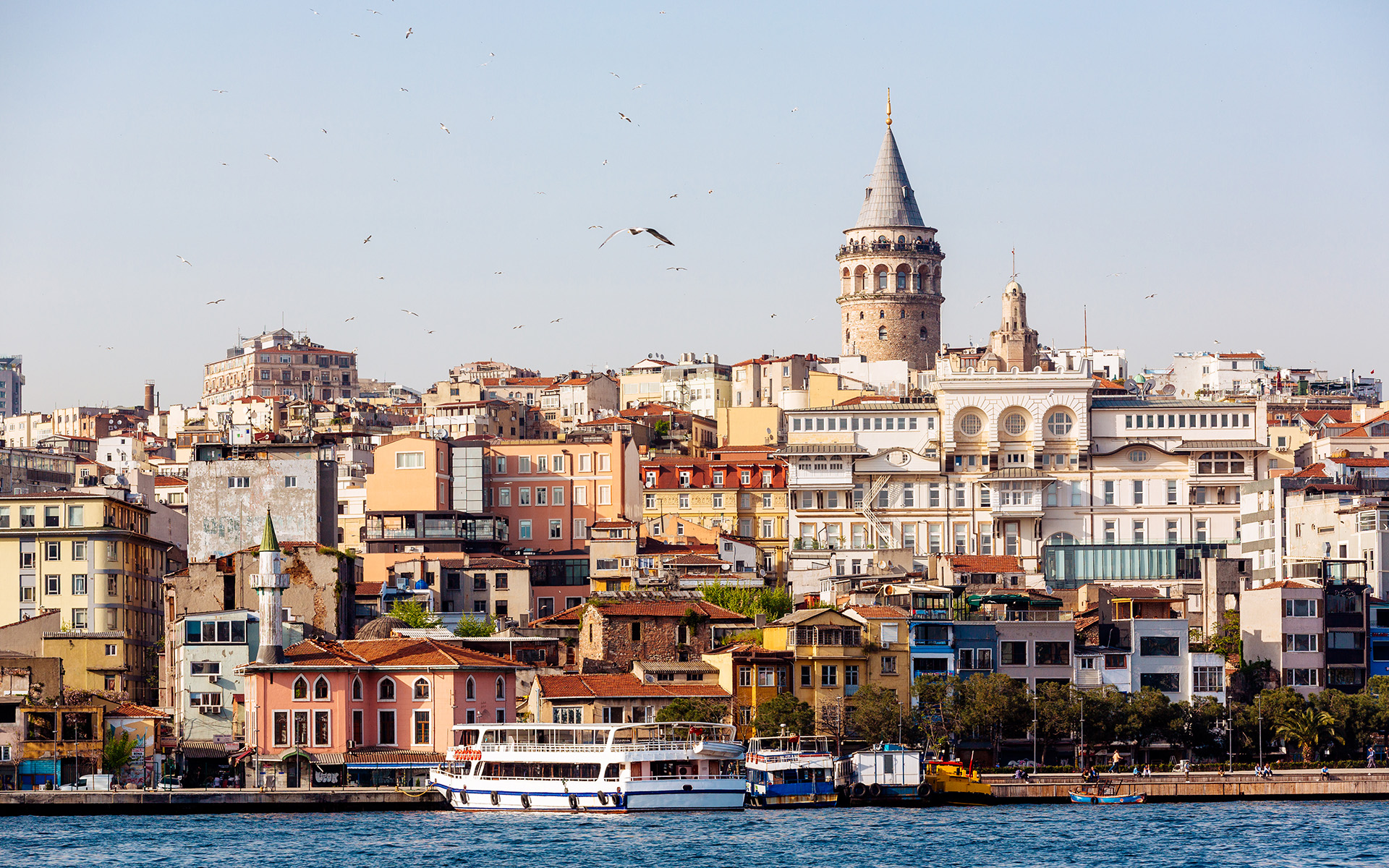A thriving and historic metropolis at the crossroads of Europe and Asia, Istanbul continues to serve as a major commercial hub with robust tourist, retail, and industrial sectors.
City Class Score
| Commercial Hubs | |
| Export Champions | |
| Mobility Connectors | |
| Climate Resilient |
Corporate HQs, MNC presence, branded outlets, hotels, manufacturing, start-up ecosystem,
transport linkages, population, and income.
Go to the class information
Manufacturing, industrial parks, export share and share change by category, air and port
infrastructure, freight time to market, trade agreements, and expert interviews.
Go to the class information
Passenger traffic, flight connectivity, air-cargo flights, port infrastructure, container
ship sailings, and major road networks.
Go to the class information
Coastal and river flooding, extreme rain, extreme heat and humidity, cyclones, and water
scarcity.
Go to the class information
Istanbul’s skyline offers proof of the city’s importance for over a millennium.
Hagia Sophia’s majestic domes and minarets dominate the view. Originally a Byzantine cathedral and
later an Ottoman mosque, the sixth-century building is a highlight of any tour. Next door lies the
Blue Mosque with its six minarets and cascading domes. The Topkapi Palace, formerly the residence of
Ottoman sultanates, testifies to the wealth of the Ottoman Empire, which at its peak stretched from
Austria to Yemen. The city may no longer be home to sultans, but it continues to deserve its high
ranking as it buzzes with commercial opportunity, from tourism to industry.
That commercial
role will only expand as the city rides a wave of global growth rebalancing and supply chain shifts.
Its broad industrial base provides multinationals with options as they seek to adjust their global
sourcing footprint. Istanbul is also seeing rising tourism flows from other emerging economic
powers, including China and India. Economic stability will be key to locking in those gains, as the
city is not yet benefiting from the types of national growth policies seen in other markets.
However, the country’s natural advantages, from its location bridging Asia and Europe across the
Bosphorus to its tourist and industrial riches, leave it well positioned.
Istanbul serves
as gateway to a country that welcomed 55 million visitors in 2023, ranking it fifth in the world — a
major reason the city sits high in our rankings. It has more hotels than almost any other city in
our index, including a wide range of five-star brands. International flight connections are similar
to those of Dubai in terms of cities served, and well ahead of Hong Kong or Singapore. But tourists
are only part of the story, as the city’s 16 million residents support a thriving retail sector with
global brands, from luxury bags to coffee chains, well represented. Istanbul’s GDP per capita of
$17,000 also places its firmly ahead of all but the most affluent emergingmarket cities.
The city’s corporate sector is also well established. Istanbul is the home of many of the country’s
largest corporates, such as the conglomerates Koc Holding and Sabancı Holding. Its manufacturing
sector, located on the city’s outskirts, benefits from close proximity to a cluster of industrial
cities including Bursa and Izmit. A well-developed port sector, including Haydarpasa with its
picturesque views of the city’s ancient skyline, adds to Istanbul’s attraction as a nearsourcing
option for Europe.

